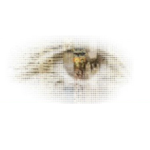 DARIAH-IE and DH@TCD, based in the Trinity Long Room Hub will take part in the Around The World Symposium on Technology and Culture on 30th May 2013.
DARIAH-IE and DH@TCD, based in the Trinity Long Room Hub will take part in the Around The World Symposium on Technology and Culture on 30th May 2013.
The symposium, which is organised by the Kule Institute for Advanced Studies at the University of Alberta, will be live streamed for 24 hours, and feature panel discussions and presentations from Digital Humanities scholars based in 9 locations across the globe: Australia, Brazil, Canada, Ireland, Japan, the UK, and The USA.
The panel session in Trinity College Dublin will take place in the Trinity Long Room Hub from 2.00pm – 4.00pm. The event is free, but seating is limited, so make sure you arrive early to grab your seat.
The event will be live video-streamed on the University of Alberta website the day of the symposium, and archived after the event for future viewing.
Further details will be added to this page as we receive them. For more details on the world-wide events, visit the University of Alberta webpage: http://aroundtheworld.ualberta.ca/
The Speakers
Dr Sandra Collins
Director of the Digital Repository of Ireland
The Royal Irish Academy
The Digital Repository of Ireland
The Digital Repository of Ireland is building an interactive national trusted digital repository for contemporary and historical, social and cultural data held by Irish institutions, providing online access and interactive multimedia tools, for use by the public, students and scholars. DRI works to raise awareness of the need and benefits of digital preservation and open access, while respecting and acknowledging ownership, rights, privacy and confidentiality. Rereading and rewriting history is predicated on the preservation and access to data, information and knowledge in archives – and increasingly by digital means, as online data increases by an estimated 50% per annum
Owen Conlan
Assistant Professor; coordinator of the CULTURA FP7 Project
School of Computer Science and Statistics, Trinity College Dublin
Personalisation, User Control and the Continuum of Experience
Personalisation offers the promise of tailoring the content delivered to each user to meet their current needs and experience. This can lead to the phenomena of the personalisation bubble where content is hidden from a user as it is deemed not appropriate these their needs or interests. In a research context this presents a significant challenge in balancing a user’s experience with the desire to expose them to the breadth of content available. This presentation introduces the CULTURA project and explores how user controlled personalisation in a humanities research environment may be achieved
Anthony Corns
Technology manager
The Discovery Programme
3D-ICONS Project: Reimaging History
3D-ICONS is a 3 year EU co-funded project which focuses on the 3D documentation of UNESCO World Heritage monuments and other monuments of outstanding value at European level. The digital content will include 3D models and reconstructions, enlarged models of important details, images, texts, and videos. It will also include and re-contextualize in 3D, objects belonging to a monument but presently located elsewhere, for example in a museum. The project’s activities include both new digitization as well as the conversion of some existing 3D data into formats which are accessible for users. The project’s anticipated impact is making accessible through the Europeana website, an unprecedented quantity of high-quality, 3D models; presenting well-organized and attractive information about the masterpieces of European architecture and archaeology. The project also explores the use and exploitation of 3D heritage content beyond the Europeana including the development of tourism initiatives and safeguarding our shared heritage
Caitriona Crowe
Head of Special Projects
National Archives of Ireland
Social consequences of free access to online census 1901 – 1911
I’ll talk about how the shame of ancestral poverty was overcome, perhaps briefly, by curiosity about people’s ancestors, and how that might influence current attitudes to poverty and deprivation.
Jennifer Edmond
Director of Strategic Projects, Faculty of Arts, Humanities and Social Sciences
Trinity College Dublin
Is more always better? CENDARI and the challenge of the ‘hidden’ WW1 archive.
The Collaborative European Digital Archival Research Infrastructure (CENDARI) is a four-year project charged with integrating digital archival resources for medieval and modern history. But its modern case study, spanning the period of the First World War, has raised some interesting questions about what this integration might mean for the study of history. This presentation will describe the challenge as we perceive it, as well as our strategy for making a positive intervention into the historical/archival research ecosystem.
Marie Wallace
Analytics Strategist
IBM
Can bigdata analytics rewrite history?
A long time before there was IBM Watson there was Father Busa, the father of digital humanities, challenging IBM founder Thomas J. Watson to build a computer program that could understand text. Sixty years later IBM has Watson, and was again being challenged by a humanist. This time it was Professor Jane Ohlmeyer, Erasmus Smith’s Professor of Modern History at Trinity College Dublin. She not only wanted us to understand ancient historical texts, but to piece together the facts extracted so that we could effectively undercover the truth hiding behind the story. Using a combination of content, semantic, and social network analysis, we were able to build a more complete picture of the Irish Rebellion of 1641 and help historians better understand a complex and troubled period in Irish history.
